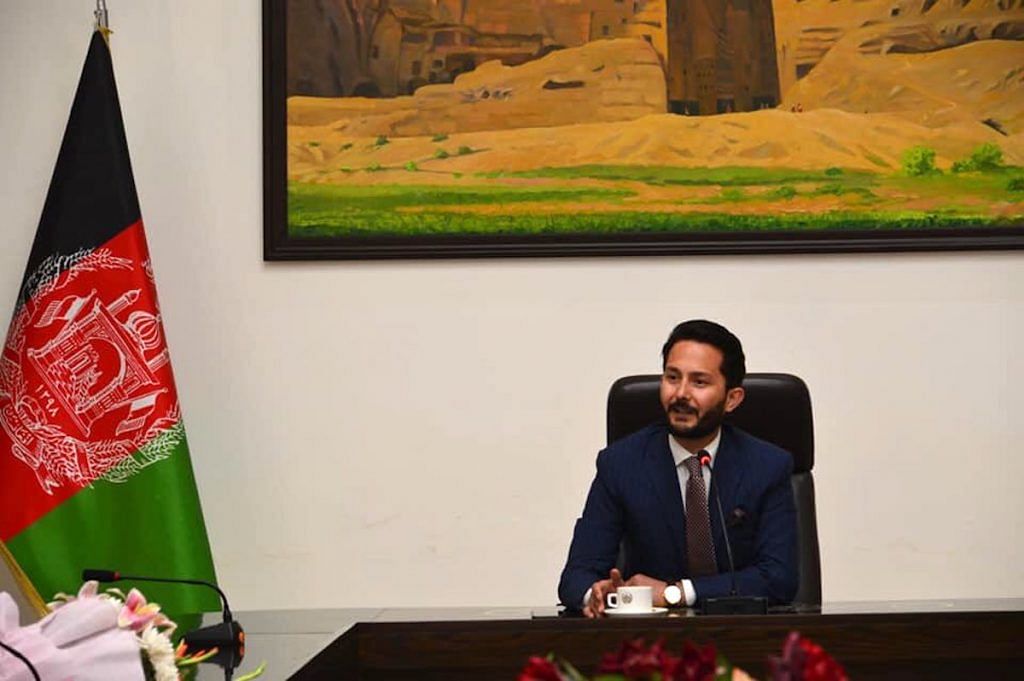New Delhi: India should lobby for the cause of Afghanistan with the international community even as the US-led peace talks with Taliban are progressing well, Tahir Qadiry, the head of the Afghan mission in New Delhi has said.
“India’s position has been quite clear that they support the Afghan position. But, we want more from India…India should engage, as the biggest contributor in Afghanistan (in South Asia), with countries that are involved in the peace talks with the Taliban,” Qadiry, who is the Chargé d’Affaires at the Embassy of Afghanistan, told ThePrint in an interview.
“All these countries (US, China and Russia) have a stake in Afghanistan because they are investing and helping Afghanistan to rebuild. We need a bit more proactive role to be played by India,” added Qadiry, who took over as the Deputy Chief of Mission of the Afghan Embassy in June this year.
Qadiry said India has been the biggest contributor in South Asia towards the development of war-torn Afghanistan.
As a result, he said, New Delhi should “lobby” for Afghanistan and its people while the US pushes towards concluding the peace talks with Taliban by September — a deadline set by the Donald Trump administration for withdrawal of its troops from the country.
‘India could use its potential to lobby for Afghanistan’
Qadiry said: “India should be engaging more because it is an emerging power. India could use its potential and its different platforms at international, national and regional level to lobby for Afghanistan and Afghan people. We want our gains to be preserved.”
“Afghanistan has changed a lot. Over the last 18 years, the country has gained so much that we don’t want to lose it. There is a Constitution, there is a Parliament, there is a young generation. We need to support all of that. We need India to lobby for that,” he said, referring to the two-day marathon meetings between the US and the Taliban in Doha earlier this month.
After the talks in which China, Russia and Pakistan had also participated, the US Special Representative for Afghanistan Reconciliation, Zalmay Khalilzad, had said the latest round of negotiations with the Taliban gave “hope for further progress.”
India was inconspicuously absent from the talks even as it remained firm on its stance that New Delhi will take part only in talks led by the Afghan government.
Also read: India must change its risk-averse stand on Afghanistan, given new Russia-Pak-China bonhomie
‘We’ve to sort out our differences with Taliban’
The US began negotiating a so-called peace agreement with the Taliban since last year in an effort to end the 18-year conflict.
According to Qadiry, while any final agreement striking a peace deal with the Taliban should be led and concluded by the Afghan government, efforts made by the US along with the international community is laudable.
“At least a dialogue is there, people are now talking face-to-face with the Taliban. The recent talks in Doha were a very good start. We have to sort out our differences with the Taliban. There needs to be more talks to tell the Taliban that Afghanistan is changed and how much they have changed…The peace deal has to be lasting, sustainable and enduring,” he added.
While the Taliban has been talking to the US for having a peace deal, it has refused to speak to the Afghan government, calling it illegitimate and a “puppet” of the US.
“Afghan government is a democratic government which has come out of the elections. The people’s votes and our government have the right to negotiate and decide. Taliban needs to integrate into the Afghan community,” Qadiry stressed.
Also read: Why Pakistan continues to support the Taliban in Afghanistan
